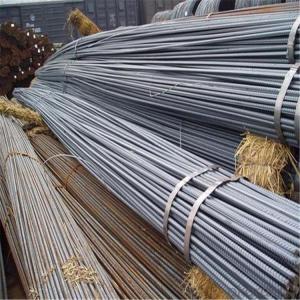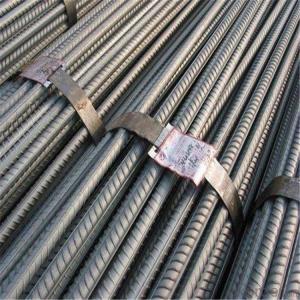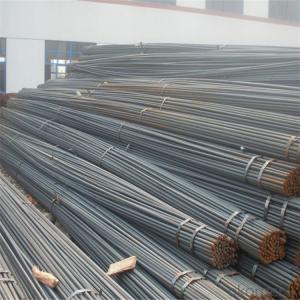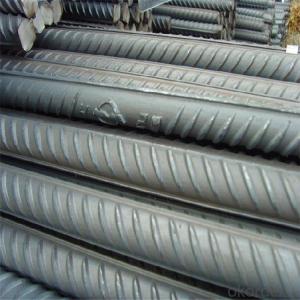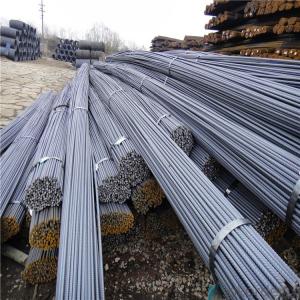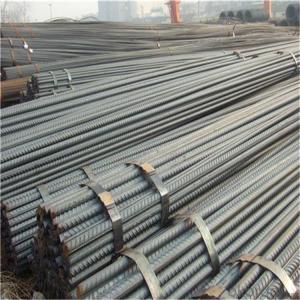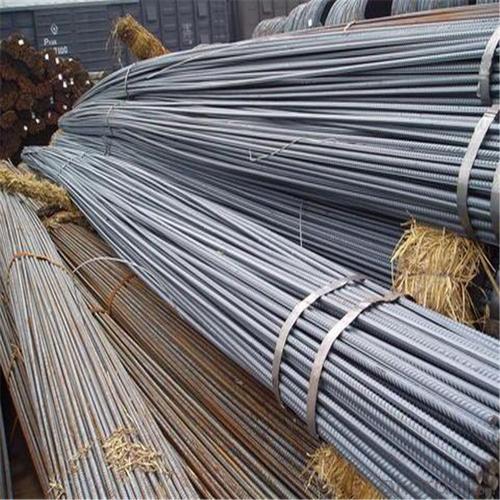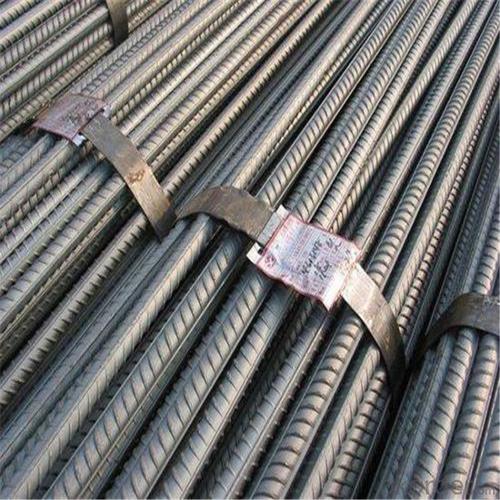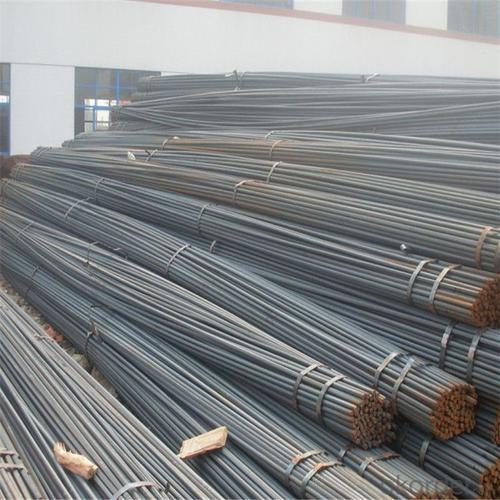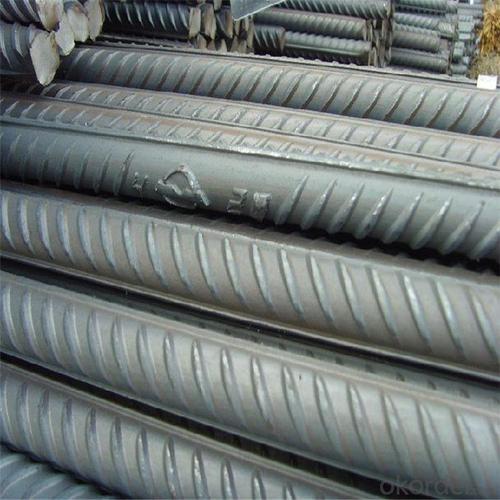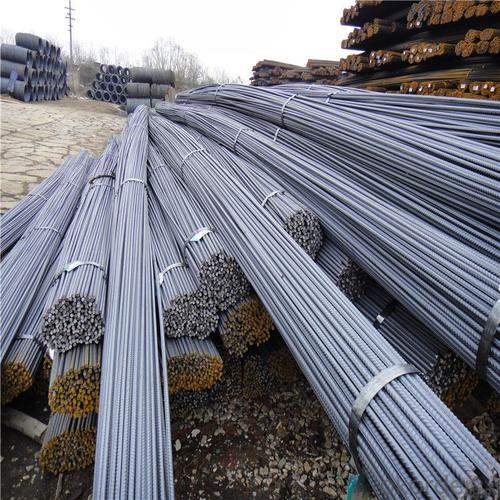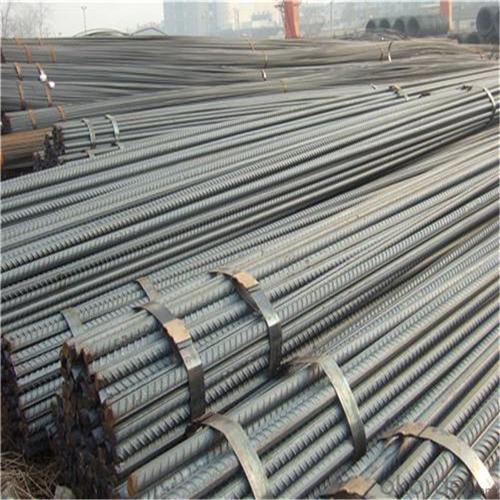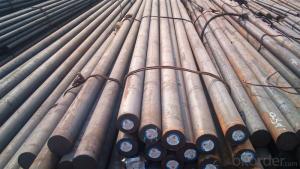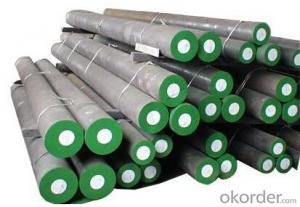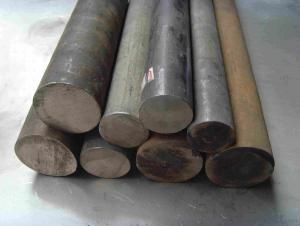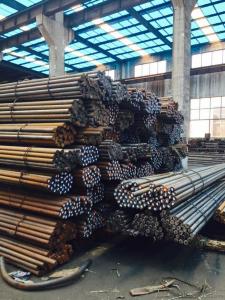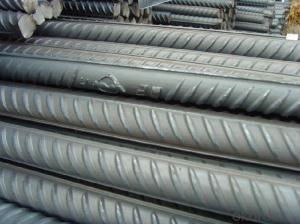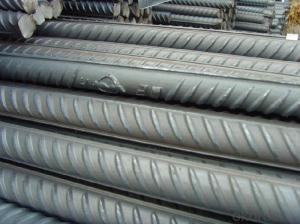HRB335 Steel Rebar Deformed Steel Bar
- Loading Port:
- Tianjin
- Payment Terms:
- TT OR LC
- Min Order Qty:
- 120 m.t.
- Supply Capability:
- 50000 m.t./month
OKorder Service Pledge
OKorder Financial Service
You Might Also Like
Specification
HRB335 Steel Rebar Deformed Steel Bar
Description of HRB335 Steel Rebar Deformed Steel Bar
1, Diameter: 5.5mm-10mm HRB335 Steel Rebar Deformed Steel Bar
10m- 40mm HRB335 Steel Rebar Deformed Steel Bar
2, Length: 6m, 9m, 12m or customized
3, Standard: GB, ASTM, AISI, SAE, DIN, JIS, EN
2, Produce Process: hot rolled or forged to get the steel round bar and plate
3, Heat Treatment: annealing, normalizing, tempering, quenching
4, Surface Treatment: Black
5, Quality Assurance: We accept third party inspection for all orders.
Chemical Composition of HRB335 Steel Rebar Deformed Steel Bar
Grade | Technical data of the original chemical composition(%) | |||||
Reinforcing steel bar HRB335 | C | Mn | Si | S | P | B |
≤0.25 | ≤1.60 | ≤0.80 | ≤0.045 | ≤0.045 | >0.0008 | |
Physics Capability | ||||||
Yield Strength(N/cm2) | Tensile Strength(N/cm2) | Elongation(%) | ||||
≥ 335 | ≥490 | ≥16 | ||||
Reinforcing steel bar HRB400 | C | Mn | Si | S | P | B |
≤0.25 | ≤0.16 | ≤0.80 | ≤0.045 | ≤0.045 | 0.04-0.12 | |
Physics Capability | ||||||
Yield Strength(N/cm2) | Tensile Strength(N/cm2) | Elongation(%) | ||||
≥ 400 | ≥ 570 | ≥ 14 | ||||
Products Show of HRB335 Steel Rebar Deformed Steel Bar
Company Information
CNBM International Corporation is the most important trading platform of CNBM group.
Whith its advantages, CNBM International are mainly concentrate on Cement, Glass, Iron and Steel, Ceramics industries and devotes herself for supplying high qulity series of refractories as well as technical consultancies and logistics solutions.


F A Q
1, Your advantages?
professional products inquiry, products knowledge train (for agents), smooth goods delivery, excellent customer solution proposale
2, Test & Certificate?
SGS test is available, customer inspection before shipping is welcome, third party inspection is no problem
3, Factory or Trading Company?
CNBM is a trading company but we have so many protocol factories and CNBM works as a trading department of these factories. Also CNBM is the holding company of many factories.
4, Payment Terms?
30% TT as deposit and 70% before delivery.
Irrevocable L/C at sight.
5, Trading Terms?
EXW, FOB, CIF, FFR, CNF
6, After-sale Service?
CNBM provides the services and support you need for every step of our cooperation. We're the business partner you can trust.
For any problem, please kindly contact us at any your convenient time.
We'll reply you in our first priority within 24 hours.
- Q: How is special steel tested for quality?
- Special steel is tested for quality through a series of rigorous examinations and tests. These include visual inspections, chemical composition analysis, mechanical property testing, and non-destructive testing methods such as ultrasonic testing and magnetic particle testing. These tests ensure that the special steel meets the necessary standards and specifications for its intended use, guaranteeing its quality and performance.
- Q: What are the main elements in special steel alloys?
- The main elements in special steel alloys can vary depending on the specific type of alloy and its intended application. However, there are several common elements that are often present in special steel alloys. These include: 1. Iron (Fe): Iron is the main component of steel alloys, providing its base strength and durability. 2. Carbon (C): Carbon is a key element in steel alloys, as it significantly influences the hardness and strength of the material. Different levels of carbon content can result in varying properties, such as high carbon steel for increased hardness or low carbon steel for improved ductility. 3. Chromium (Cr): Chromium is commonly added to steel alloys to enhance their corrosion resistance. It forms a protective layer on the surface of the alloy, preventing oxidation and rusting. 4. Nickel (Ni): Nickel is often used in special steel alloys to improve their resistance to heat and corrosion. It also contributes to enhancing the material's strength and toughness. 5. Manganese (Mn): Manganese is commonly added to steel alloys to improve their workability and machinability. It also enhances the material's strength and impact resistance. 6. Molybdenum (Mo): Molybdenum is frequently included in special steel alloys to increase their strength, hardness, and high-temperature resistance. It also improves the alloy's ability to withstand corrosion. 7. Vanadium (V): Vanadium is often added to steel alloys to enhance their strength, toughness, and heat resistance. It also aids in refining the grain structure of the alloy, resulting in improved performance. These are just a few examples of the main elements commonly found in special steel alloys. Depending on the specific requirements and desired properties, other elements such as tungsten, cobalt, copper, and titanium may also be present in varying amounts. The combination of these elements in different proportions allows for the creation of specialized steel alloys with unique properties tailored for specific applications in industries such as aerospace, automotive, construction, and manufacturing.
- Q: Can special steel be used for making aerospace engine components?
- Certainly, aerospace engine components can be made using special steel. The aerospace industry commonly utilizes special steel alloys, such as nickel-based superalloys and stainless steels, due to their remarkable mechanical properties, ability to withstand high temperatures, and superior resistance to corrosion. These alloys are specifically engineered to endure the extreme conditions and demands of aerospace engines, including high temperatures, pressures, and stress levels. Moreover, special steel alloys offer a high strength-to-weight ratio, which is crucial in reducing the weight of aerospace components while preserving their structural integrity. Consequently, the utilization of special steel in aerospace engine components ensures the dependability, performance, and safety of engines in aeronautical applications.
- Q: What are the applications of special steel in the manufacturing sector?
- Special steel has a wide range of applications in the manufacturing sector, including the production of tools, machinery, automotive components, and construction materials. Its exceptional strength, durability, and resistance to corrosion make it ideal for manufacturing applications that require high performance and reliability. Furthermore, special steel can be tailored to specific requirements, enabling manufacturers to create customized products with enhanced properties, such as heat resistance or hardness. Overall, special steel plays a crucial role in various industries, contributing to the advancement and efficiency of the manufacturing sector.
- Q: Can special steel be used in the production of springs for watches?
- Yes, special steel can be used in the production of springs for watches. Special steel, commonly known as spring steel, possesses high elasticity and strength, making it ideal for creating precision springs that are essential for the functioning of watches. It provides the necessary resilience and durability required for the accurate and reliable timekeeping of watches.
- Q: How does special steel compare to other materials like aluminum or titanium?
- Special steel is known for its exceptional strength, durability, and resistance to corrosion, making it a popular choice for various applications. Compared to materials like aluminum or titanium, special steel often offers superior strength and toughness, making it suitable for heavy-duty industries such as construction, automotive, and aerospace. While aluminum is lightweight and has good corrosion resistance, it may lack the necessary strength for certain demanding applications. Titanium, on the other hand, is lightweight and possesses excellent strength-to-weight ratio, but it is more expensive and difficult to process than special steel. Ultimately, the choice between special steel, aluminum, or titanium depends on the specific requirements of the application at hand.
- Q: How does special steel contribute to national security?
- National security is significantly enhanced by special steel, which serves various purposes. Firstly, it is extensively utilized in the production of military equipment and weapons. Tanks, armored vehicles, submarines, and aircraft carriers require special steel due to its exceptional strength, resilience, and resistance to corrosion. Incorporating special steel into military applications ensures the durability and reliability of these vital defense systems, ultimately strengthening national security. Secondly, special steel plays a pivotal role in the construction of critical infrastructure. Bridges, tunnels, and buildings, which are essential for a nation's functioning and security, rely on special steel. Its unparalleled strength and ability to withstand extreme conditions make it a crucial material for structures that must endure natural disasters, terrorist attacks, or other security threats. By incorporating special steel into infrastructure projects, a nation can fortify its security and safeguard its citizens. Additionally, special steel is of utmost importance in the energy sector, particularly within nuclear power plants. Special steel alloys are employed in the construction of reactor vessels and other components that encounter high temperatures and pressures. The utilization of special steel ensures the integrity and safety of these critical facilities, mitigating the risk of potential nuclear accidents that could pose significant threats to national security. Lastly, special steel contributes to national security by supporting the defense industry and fostering technological advancements. Research and development in special steel alloys often lead to breakthroughs in material engineering, which can have broader applications beyond defense. These advancements stimulate innovation in sectors such as aerospace, automotive, and energy, thereby augmenting a nation's overall technological capabilities and economic competitiveness. In conclusion, special steel's contribution to national security is multifaceted. Its incorporation in military equipment, critical infrastructure, nuclear power plants, and technological advancements all play a pivotal role in safeguarding a nation's interests, protecting its citizens, and maintaining its strategic advantage in an increasingly turbulent world.
- Q: What are some examples of special steel alloys?
- There are several examples of special steel alloys that are widely used in various industries. One such example is stainless steel, which contains a minimum of 10.5% chromium, making it highly resistant to corrosion. Stainless steel is commonly used in the manufacturing of kitchen utensils, medical equipment, and automotive parts. Another example is tool steel, which is specifically designed to have high hardness and wear resistance. Tool steel is commonly used in the production of cutting tools, molds, and dies. High-speed steel is another special steel alloy that is known for its exceptional ability to maintain hardness even at high temperatures. This makes it ideal for manufacturing cutting tools used in high-speed machining operations. Alloy steel is a broad category that includes various steel alloys with specific properties. For example, low alloy steel contains small amounts of other elements such as manganese, nickel, or silicon to enhance its strength and toughness. This type of steel is commonly used in the construction industry. Furthermore, maraging steel is a special alloy that combines high strength with good toughness. It is often used in aerospace applications, such as aircraft landing gear and missile components, due to its ability to withstand high stress and impact. Overall, these are just a few examples of the many special steel alloys available, each tailored to meet specific requirements and applications in industries ranging from construction to aerospace.
- Q: How does the hardness of special steel affect its machinability?
- The hardness of special steel has a direct impact on its machinability. Generally, as the hardness of steel increases, its machinability decreases. Harder steel is more difficult to cut, shape, and form due to its increased resistance to deformation. Consequently, machining operations, such as drilling, milling, or turning, become more challenging and require specialized tools and techniques to achieve the desired results.
- Q: Is special steel suitable for structural applications?
- Yes, special steel is well-suited for structural applications. This type of steel is engineered to possess specific properties and characteristics that meet the demands of various applications. Industries such as construction, automotive, aerospace, and oil and gas often rely on special steel. The outstanding strength, durability, and resistance to corrosion of special steel make it an ideal material for structural applications. It can withstand heavy loads, high temperatures, and extreme weather conditions, ensuring the safety and longevity of structures. Furthermore, special steel offers excellent weldability, machinability, and formability, allowing for flexibility in design and construction. It can be easily shaped, fabricated, and assembled into various structural components, making it suitable for complex and unique projects. Moreover, special steel comes in a wide range of grades and types, each tailored to meet specific structural requirements. These include carbon steel, alloy steel, stainless steel, and tool steel, among others. This versatility enables engineers and designers to select the most suitable type of special steel for their specific application, ensuring optimal performance and cost-effectiveness. In conclusion, special steel is highly suitable for structural applications due to its exceptional strength, durability, resistance to corrosion, and design flexibility. The wide range of grades and types available allows engineers and designers to choose the most appropriate material for their specific project requirements.
Send your message to us
HRB335 Steel Rebar Deformed Steel Bar
- Loading Port:
- Tianjin
- Payment Terms:
- TT OR LC
- Min Order Qty:
- 120 m.t.
- Supply Capability:
- 50000 m.t./month
OKorder Service Pledge
OKorder Financial Service
Similar products
Hot products
Hot Searches
Related keywords
